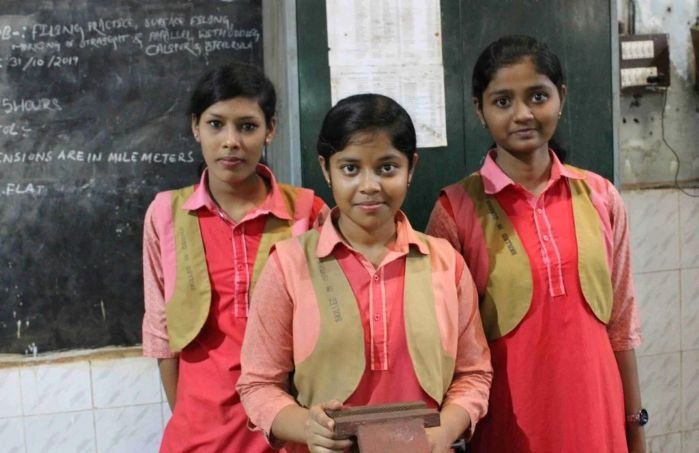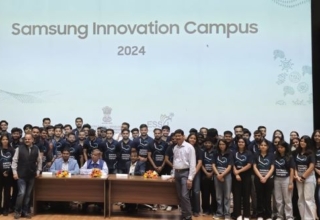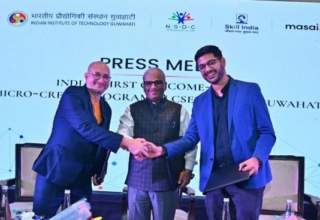
The global quantum technology market which is expected to reach $21.6B by 2025 provides tremendous growth opportunities for Indian Market too. India is ideally placed today to become a global research partner in this field, as is evident through the work of several research groups on quantum science and technologies across the country. All these need to work together with multiple stakeholders, whether it is start-ups, research institutions or developers or Government to put Quantum at the right direction.
This was stated by Deepak Sood Secretary General, ASSOCHAM at webinar on “Unlocking the Potential of Quantum for India” organized by ASSOCHAM in association with Department of Science and Technology, Government of India. The forum had assembled to discuss the industry roadmap on quantum computing technology adaptation, Commercialization, and future strategies of Indian industry to develop these emerging and disruptive technologies.
Umamaheswaran, Scientific Secretary, ISROin his remarks said, “India is not new to the fundamental research of quantum mechanics and has gifted many eminent quantum scientists to the world. The beauty of quantum science is its speed and security. The Indian government has taken timely action and quantum technologies is one of the nine verticals identified by Prime Minister’s science, technology and innovation advisory council. The govt also launched the national mission motivation for quantum technologies and application where ministries, industries, institutes and academia have joined hands to enable a quantum enabled nation by unlocking the quantum potential of the country”.
The other prominent panelists included, Dr. Rohini Srivathsa, National Technology Officer, Microsoft India, Dr. Lovneesh Chanana, Chairman, ASSOCHAM National Council on IT/Ites & eCommerce, Ashwani Rana, Co-Chairman, ASSOCHAM National Council on IT, Ites & eCommerce, José Ignacio LATORRE, Director, Centre for Quantum Technologies, Provost’s Chair Professor, Department of Physics, National University of Singapore, Simone Severini, Director, Quantum Computing, Amazon Web Services and Professor, Physics of Information, University College London (UCL), Darshan Hiranandani, Chairman, ASSOCHAM National Council on Data Centers .
Highlighting some of the government’s initiatives,Prof. Ashutosh Sharma, Secretary, Department of Science and Technology, in his observations said, “The government has undertaken mapping of the people, groups and resources in the country that could work in quantum technology. We already have good capability and more have to be cultivated. We launched a modest program with 200 crore rupees over 3 years with the idea of cultivating capabilities in the system to be ready for bigger things. Ministries like Meity, ISRO, DRDO have been working towards quantum technologies in different capacities. The union budget 2020 announced a national mission on quantum technologies and applications with a total outlay of Rs. 8000 crores for a period of five years. We have already set up 25 hubs of cyber physical systems across the country. The architecture, structure and processes of which is radically different from the way we have been doing things in the past and best practices and learning of which will be duplicated in the quantum mission”.
Addressing the conclave, Dr. Rohini Srivathsa, National Technology Officer, Microsoft India says, “Quantum as a set of technologies is broader than computing including communications and sensing among others. The kind of problems we are facing today like climate change, pandemics, optimising our national resources, energy needs for the growing economies around the world, these are planet scale problems and are different in nature and scientist and technologists are looking at quantum computing to solve some of these exponentially complex problems. The need for developers, students and companies to get involved in the quantum journey is now”.
Having confidence in India’s path forward will be driven by achieving world-class scientific solutions. “We at ASSOCHAM recommend the need to accelerate the quantum computing-led research and development work and enable new scientific discoveries. We need to involve our researchers and work with subject matter experts. We need more Quantum Computing Applications Lab in India which can offer Quantum Computing as a Service to government ministries and departments, researchers, scientists, academia, and developers to enable advances in areas like manufacturing, healthcare, agriculture, and aerospace engineering. I am confident that Government and industries efforts in quantum computing will play a key role in scientific advancements and learning,” added Mr Sood.








